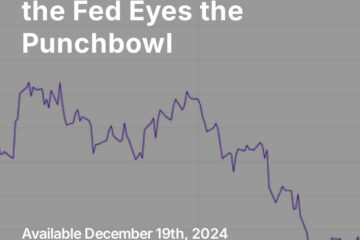Internet Investment in China Attracts Scrutiny from Central Bank
A tiny slice of China’s savings are beginning to flow into new online investment vehicles run by Chinese internet giants such as Alibaba, Tencent, and Baidu. Chinese regulators are now looking at the phenomenon — and so are China’s big commercial banks, who may sense the rise of a possible threat to their dominant position.
 As we’ve described recently in our coverage of the Chinese banking system and the government’s attempt to rein in shadow finance, Chinese savers face a situation where bank deposits’ returns are capped — currently at 3.3 percent. With inflation running at an
As we’ve described recently in our coverage of the Chinese banking system and the government’s attempt to rein in shadow finance, Chinese savers face a situation where bank deposits’ returns are capped — currently at 3.3 percent. With inflation running at an
annual rate of about 2.5 percent, many turn to other options, such as the “trust products” that are coming under increasing pressure this year.
Now China’s younger savers (and small businesses) are looking to investment vehicles offered online. Alipay, the online payment system run by Alibaba, will soon begin selling a one-year, principle-guaranteed product with an advertized annual return of 7 percent. The graph to the right shows the attractiveness of these vehicles.
Online Finance: Books Performing Well
Alibaba says its online funds are invested in “debt, currencies, deposits, and other liquid assets.” So far, their book is performing well — of $2 billion, less than 2 percent were non-performing as of July, 2013.
At only $40 billion, these vehicles are a drop in the bucket compared to the $7.59 trillion of China’s bank deposits. But they may be the writing on the wall as the government begins to think about the liberalization of interest rates — a move the big commercial banks have resisted.
Pushing For Interest Rate Liberalization
If the government just regulates these new vehicles, rather than crushing them, it may force the banks to compete — and thus bring more money out of the shadows and into the mainstream banking system. This would make sense, given the government’s strategy to reduce the size and risks of shadow finance in a controlled and gradual fashion.
The central bank and Chinese regulators have announced their intention to begin regulating this new online finance sector with measures to protect the private information of investors and make sure that those selling internet investment products disclose the risks adequately.
We anticipate what may be a tumultuous year for the Chinese financial system, and this emerging trend introduces another potentially disruptive factor. However, the response of the People’s Bank of China and of Chinese regulators to the online finance upstarts may even strengthen our conviction that the risks are well within the authorities’ capacity to handle.



